Travel Visa Vietnam Requirements and important information
Vietnam, with its magnificent natural landscapes, unique culture, and friendly people, has become an attractive destination for international tourists. It’s especially appealing for adventure and exploration enthusiasts interested in joining Vietnam Motorcycle Tours. However, before you can explore the beauty of this country, the first question you need to ask is: “Do I need a visa?” The answer to this question depends on your nationality. In this article, Vietnam Motorbike Tours will provide information for a travel visa Vietnam requirements and other important details you need to know before your journey.
Do foreigners need a visa to enter Vietnam?
When it comes to entering Vietnam, the first thing that foreigners need to pay attention to is the country’s visa policy. Vietnam currently implements a visa exemption policy for citizens of certain countries and territories. This means that if you are a citizen of one of the exempt countries, you can enter Vietnam without having to apply for a visa in advance.
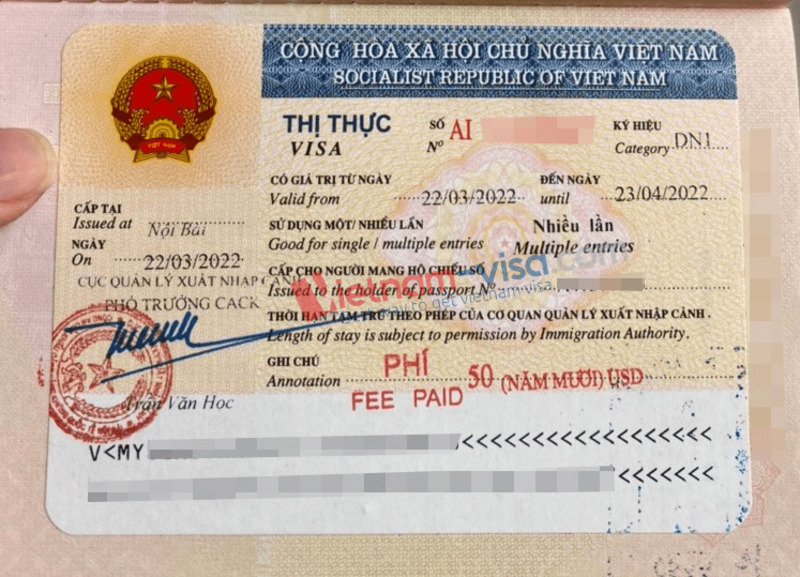
Vietnam’s current visa exemption policy applies to approximately 80 countries and territories. Citizens of these countries can enter Vietnam without a visa, with a maximum stay ranging from 15 days to 45 days depending on the country. The list of visa-exempt countries can change over time, so you should regularly check the latest information from the website of the Vietnamese Ministry of Foreign Affairs or the Vietnamese Embassy/Consulate in your country.
For those who are not on the visa exemption list, obtaining a visa is mandatory. You can apply for a visa at the Vietnamese Consulate in your home country.
Countries exempted from Travel Visa Vietnam
Vietnam currently exempts visa requirements for citizens of approximately 80 countries and territories. This visa exemption aims to encourage tourism and promote diplomatic relations between Vietnam and other countries. Below are some details about the countries that are exempt from visas and the maximum length of stay allowed:
– Belarus * (no visa required for up to 15 days)
– Brunei (no visa required for up to 14 days)
– Cambodia (no visa required for up to 30 days)
– Chile (no visa required for up to 90 days)
– Denmark * (no visa required for up to 15 days)
– Finland * (no visa required for up to 15 days)
– France * (no visa required for up to 15 days)
– Germany * (no visa required for up to 15 days)
– Indonesia (no visa required for up to 30 days)
– Italy * (no visa required for up to 15 days)
– Japan * (no visa required for up to 15 days)
– Kyrgyzstan (no visa required for up to 30 days)
– Laos (no visa required for up to 30 days)
– Malaysia (no visa required for up to 30 days)
– Myanmar (no visa required for up to 14 days)
– Norway * (no visa required for up to 15 days)
– Philippines (no visa required for up to 21 days)
– Russia * (no visa required for up to 15 days)
– Singapore (no visa required for up to 30 days)
– South Korea * (no visa required for up to 15 days)
– Spain * (no visa required for up to 15 days)
– Sweden * (no visa required for up to 15 days)
– Thailand (no visa required for up to 30 days)
– United Kingdom * (no visa required for up to 15 days)
(*) The 15-day visa exemption also applies to citizens from these countries with certain conditions.
See more: Update the latest list of airports in Vietnam 2024
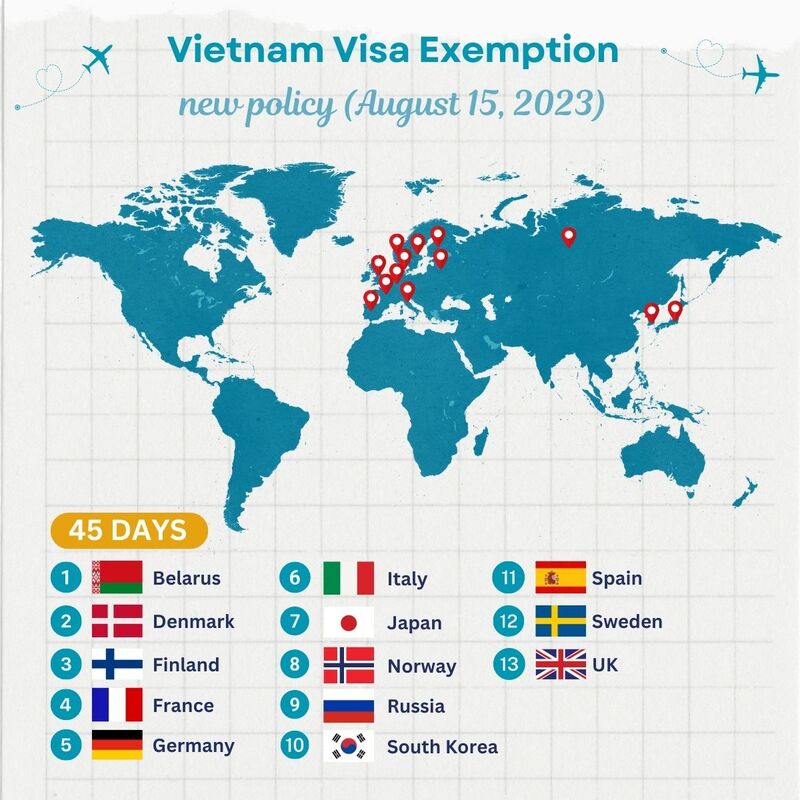
Travel Visa Vietnam Requirements
To apply for a Vietnam tourist visa, you need to prepare all the necessary documents. Here is a list of basic requirements to keep in mind.
- Passport: The passport is the most important document you need to prepare. Your passport must be valid for at least 6 months from the expected date of entry into Vietnam. Additionally, the passport should have at least 2 blank pages for the visa and your signature.
- Passport Photos: You need to prepare 2 passport-sized photos (4×6 cm) with a white background, taken within the last 6 months. The photos must be clear and show your full face. This is a mandatory requirement when submitting your visa application.
- Visa Application Form: You can download the visa application form from the website of the Vietnamese Embassy or Consulate in your country. You need to fill out all personal information, trip details, and sign the form. Ensure that all information is accurate and complete.
- Airline Tickets: A return ticket or a ticket to Vietnam and a ticket for onward travel are important requirements. You need to prove that you plan to leave Vietnam after your stay.
- Accommodation Confirmation: Confirmation of hotel reservations or other accommodations in Vietnam should also be provided. This helps authorities verify that you have a place to stay during your time in Vietnam.
- Financial Proof: You need to prove that you have sufficient financial means to cover your trip. You can use bank statements or a confirmation of account balance. This ensures that you have enough funds to cover your expenses during your stay in Vietnam.
- Invitation Letter: If you are invited to Vietnam by relatives or friends, you need to have an invitation letter from them. The invitation letter must have the signature and seal of the inviter. This can increase your chances of getting the visa.
- Travel Insurance: Although not a mandatory requirement, it is advisable to purchase travel insurance to protect yourself in case of unexpected incidents. Travel insurance will give you peace of mind throughout your trip.
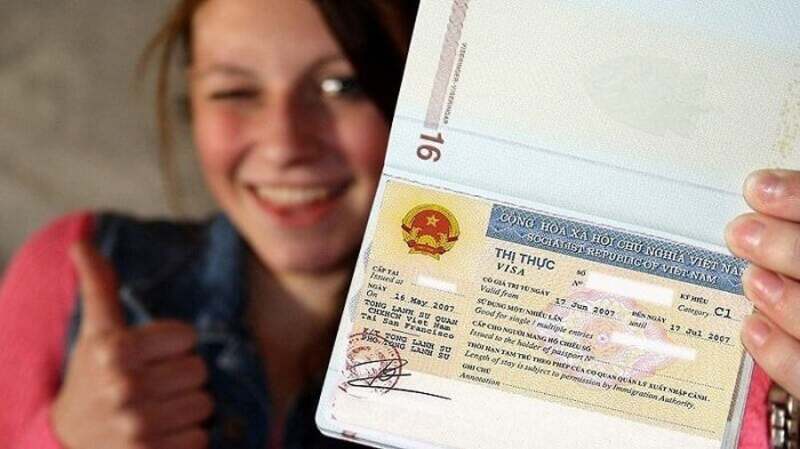
How to apply for Vietnam tourist visa for foreigners
There are three main ways to apply for a Vietnam tourist visa, each with its own advantages and disadvantages. You can choose the one that best suits your circumstances.
Online
Online visa application is one of the most popular methods nowadays. You can complete all the procedures online without needing to visit an embassy or consulate. The advantages of this method include convenience and the ability to complete all the procedures from home without traveling, saving time. However, the disadvantages include higher application costs, and not all countries allow online visa applications.
Pay on arrival
Applying for a visa on arrival in Vietnam is another option for those looking to save time and costs. The advantage of this method is that you can apply for a visa directly at the border without prior preparation. Compared to applying for a visa at an embassy, the cost of applying on arrival is generally lower.
However, the downside is that the documentation requirements are usually stricter, and the processing time at the border can be quite lengthy. If you don’t have all the necessary documents, you may be denied entry.
At the Vietnamese Embassy or Consulate
Applying for a visa on arrival in Vietnam is another option for those looking to save time and costs. The advantage of this method is that you can apply for a visa directly at the border without prior preparation. Compared to applying for a visa at an embassy, the cost of applying on arrival is generally lower.
However, the downside is that the documentation requirements are usually stricter, and the processing time at the border can be quite lengthy. If you don’t have all the necessary documents, you may be denied entry.
See more: Money in Vietnam: Exchange Rates, How to Distinguish Correctly
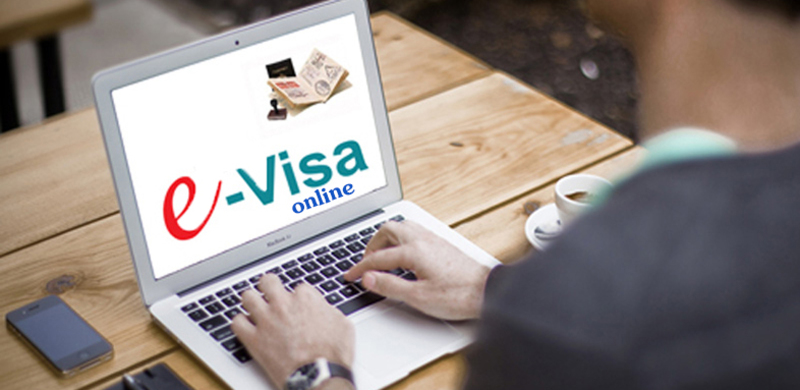
How much does it cost to apply for a Vietnam tourist visa?
The cost of applying for a tourist visa to Vietnam depends on various factors, including your nationality, the type of visa you are applying for, and the method of application. Below is some detailed information about the costs.
- Online visa application: The cost can range from 50 to 80 USD. While convenient, it is usually more expensive than other methods.
- Visa application at the border: The cost can be around 25 to 40 USD. This is a cost-effective method, but you should be aware of the required documents.
- Visa application at the Embassy/Consulate: The cost can range from 50 to 100 USD. This is a safe method but often requires more time and effort.
In addition to the visa application fee, you should also consider other additional costs such as:
- Translation fees: If your documents need to be translated into Vietnamese, you will have to pay extra for this service.
- Travel insurance fees: While not mandatory, purchasing travel insurance is a cost to consider for protecting yourself during the trip.
- Travel expenses: If you choose to submit your application at an Embassy or Consulate, you will need to account for travel and accommodation expenses during the waiting period.
Visa application costs may vary over time and depending on individual circumstances. Therefore, you should check the information on the website of the Vietnamese Embassy or Consulate in your country for the most accurate information.
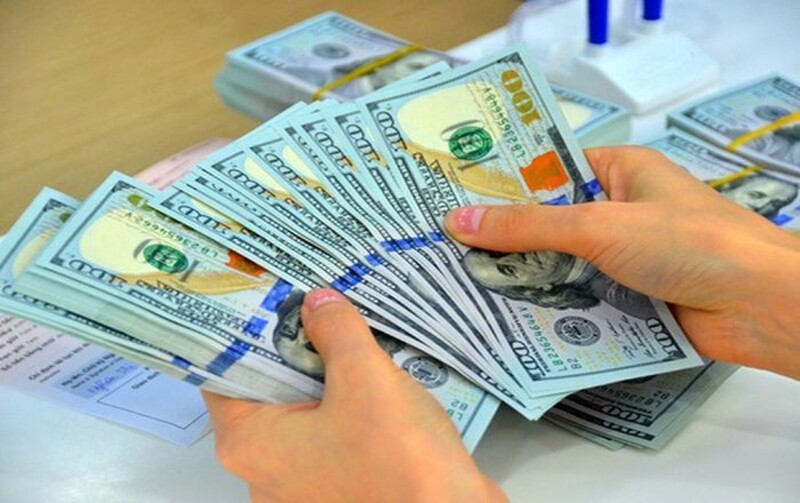
How long is a Vietnam tourist visa valid for?
The validity period of a Vietnam tourist visa depends on your nationality and the type of visa you are applying for. Typically, the duration of a Vietnam tourist visa for foreigners is 1 month, 3 months, or 6 months. Short-term tourist visas usually allow a maximum stay of 30 days, while long-term visas may permit a longer stay.
The validity period of the visa starts from the date you enter Vietnam. This means that if you have a 1-month visa, you must leave Vietnam before the visa expires. If you stay beyond the allowed period, you may encounter issues with the authorities.
Can I extend my Vietnam tourist visa?
Extending a tourist visa in Vietnam is an important issue that many travelers need to be aware of. If you wish to stay in Vietnam longer than your initial visa allows, you can go through the process of extending your visa.
Visa Extension Requirements
To extend your visa, you must meet all the requirements set by the authorities. This includes providing the necessary documents and a valid reason for the extension. Some valid reasons may include work, study, or emergency situations.
Visa Extension Procedures
To extend your visa, you need to contact the local immigration office where you reside in Vietnam. You will need to submit an application for a visa extension along with required documents such as your passport, passport-sized photos, and documents supporting the reason for the extension.
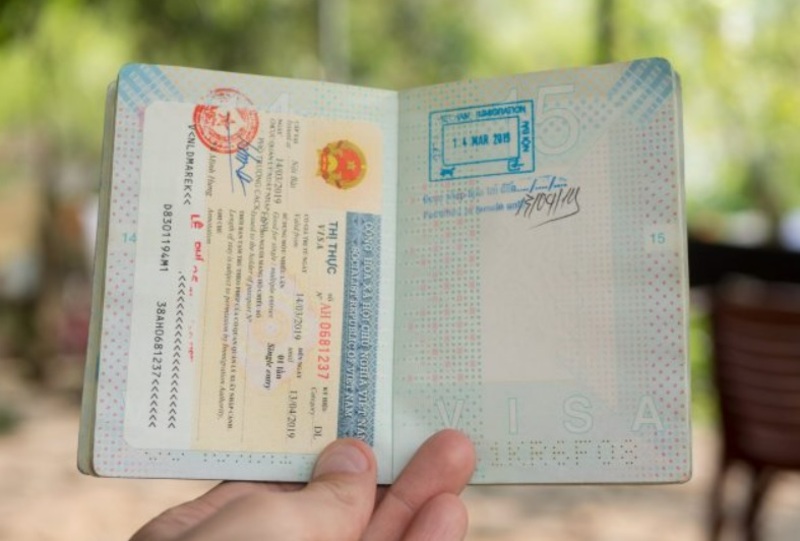
Time and Cost of Extension
Extending a visa can be time-consuming and costly. The processing time may take from a few days to several weeks, depending on the specific circumstances. It is advisable to prepare in advance and not wait until your visa is close to expiring before starting the extension process.
We hope this article helps you understand the requirements for a tourist visa in Vietnam and the important information you need to know before you travel. Proper preparation for your visa will help ensure a smooth and enjoyable trip to this beautiful country. Always check the latest information from official sources and plan your trip carefully to avoid any unnecessary complications.
Contact us for more interesting information
- Address: 3/7/36 Duy Tan Street, Cau Giay District, Ha Noi City
- Mobile: +84 976 024 986
- Email: [email protected]
- Website: https://vietnammotorbiketoursclub.com/
RELATED POSTS
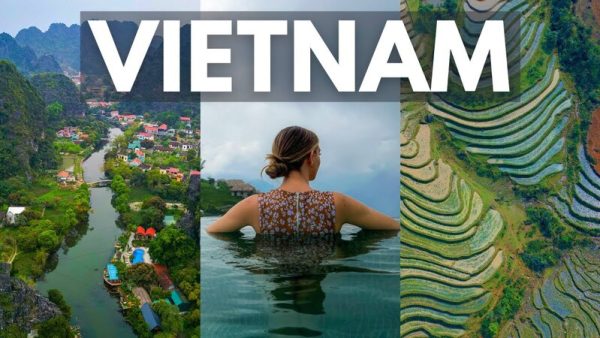
Visiting Vietnam In March 2025? Top 10 Hottest Destinations
March is an ideal time to travel, with pleasant weather and fresh air, leaving many wondering which destination to choose. If you are also looking...
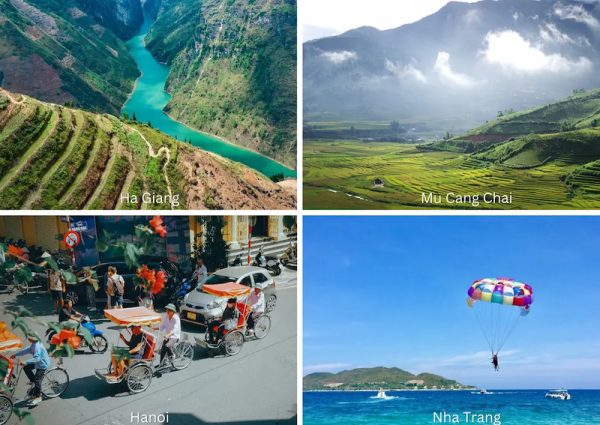
The Ultimate Guide to Visiting Vietnam In April 2025
April is a unique transitional period in Vietnam, bringing a pleasant atmosphere that is perfect for travel. It’s when the country blends the lingering coolness...
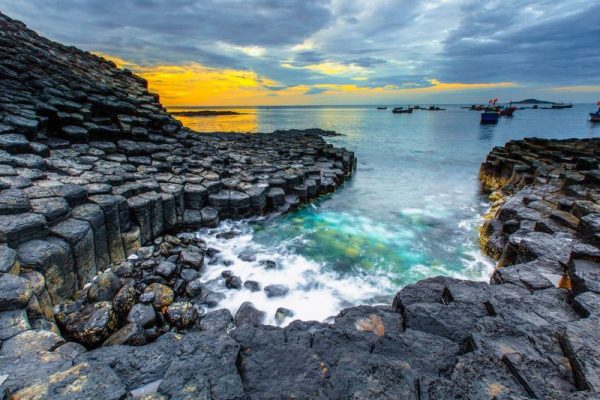
Ghenh Da Dia Phu Yen – A beautiful check-in location for tourists
Ghenh Da Dia Phu Yen – a unique natural wonder of Vietnam, where basalt rocks are stacked like giant honeycombs creating a magnificent picture in...




